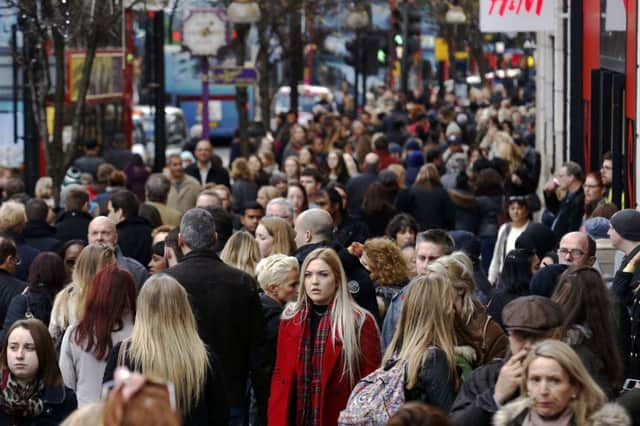Household saving at record low as consumers try to keep up spending


The Office for National Statistics (ONS) said the saving ratio for households dropped from 5.3% to 3.3% of total disposable income in the fourth quarter.
The rate, which includes non-profit institutions serving households (NPISH) and includes the likes of labour unions and charities, was at its lowest level since records began in 1963.
Advertisement
Hide AdAdvertisement
Hide AdThat figure measures the amount being put away for saving as a proportion of disposable income.
It came amid a 0.7% rise in household spending in the fourth quarter, helping fuel a 0.7% rise in gross domestic product (GDP) growth over the same period.
Consumers have managed to keep up spending despite a 0.4% drop in real disposable incomes, which have been knocked by rising inflation following the post-Brexit vote collapse of the pound.
It has left households with less cash for saving.
ONS head of GDP Darren Morgan said: “Although household spending rose at the end of last year, there was a noticeable worsening in people’s perception of the general economic situation and their own financial position.”
Advertisement
Hide AdAdvertisement
Hide AdWhile Mr Morgan said that the drop in the saving ratio was partly due to factors like the holding of pension funds rather than any “significant changes” in real incomes, experts say it signals more challenging times ahead.
John Hawksworth, chief economist at PwC, said: “In short, the UK consumer increasingly appears to be living beyond their means and this cannot continue forever as inflation rises further above target over the course of this year, squeezing real earnings.
“This reinforces our view that we will see a gradual slowdown in the UK economy this year as consumers pull in their horns, despite some offset from stronger net exports.”
Inflation surged to 2.3% in February, as sterling’s post-Brexit vote collapse made everyday items more expensive.